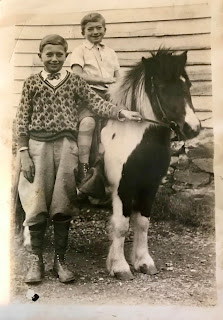A friend, aware of our present situation, wrote recently, “I’m thinking your faith is helping you through.” I immediately thought of Ray Price’s song, “Faith,” which I’ve been listening to for over 60 years:
“You must have faith/In everything you do/Faith will help you find the way/Faith will see you through/Faith can move mountains/And change the tides of the sea/You can follow this guiding light/Wherever you may be/Like the darkness that comes at the end of the day/There must be an end to the night/And from the depths of your darkest moment/Faith will show you the light/Yes, you must have faith/In everything you do/Faith will help you find the way/Faith will see you through.”
“Yes,” I responded, “Our faith is a strength and a comfort for us. We know that we are in the company of Another who will never forsake or leave us, who is with us in this time as in all other times to carry us through. Yes, our faith is helping us through.”
Sometimes we have faith and sometimes we don’t. Sometimes we sense God is present and Love is at the heart of all things. Then something catastrophic comes along, or some grim fact of life comes knocking at our door, and this faith of ours wilts and withers like a wild flower cut from its roots. The dark clouds blanket our bewildered and frightened minds and we can’t think, or feel, or see Love anywhere. Life’s perplexities and our frustration with them cause us to scapegoat this Love at the heart of things as being the culprit, the one who has ordained the calamities. If there is a God, if Love is there, how can this stuff be happening in our world and in our lives?
In our hurt, sadness, and utter frustration we rail against these ills of life, and against Love’s mismanagement of things. We sometimes even suggest that all this silliness about Love at the heart of things should be abandoned as a wasteful quest. Perhaps, we even say, it would be better to go it on our own than spend our time waiting around for Love to Love.
We forget, as life tumbles in on us, that Love by its very nature, does not coerce. Love does not bully. Love does not control or make things go its way. Love loves irrespective of merit. If Love is at the heart of all things, and Love is God, then we have painted an erroneous image of God as One who steps in to give or to remove our suffering, who steps in to give or to take away our hurt and distress. Such control, coercion, and domination would take away our humanness, our freedom—and I just don’t believe that is what Love is.
Love does not force things upon us. Love does not bring viruses, or disease, or suffering, nor does Love take these things away from some and not from others. Love does not abandon us and does not remain aloof in our anguish and perplexities. Love, rather, sits with us and feels what we feel. Love wraps us in an embrace and holds us and weeps and hurts with us. Love shares our burdens and calls us to love others like that too. Yes, faith—faith in the Love at the heart of things—will see us through.
 |
| "Caring is the best thing in the world; Caring is all that matters; Christianity taught us to care." (von Hugel) |














